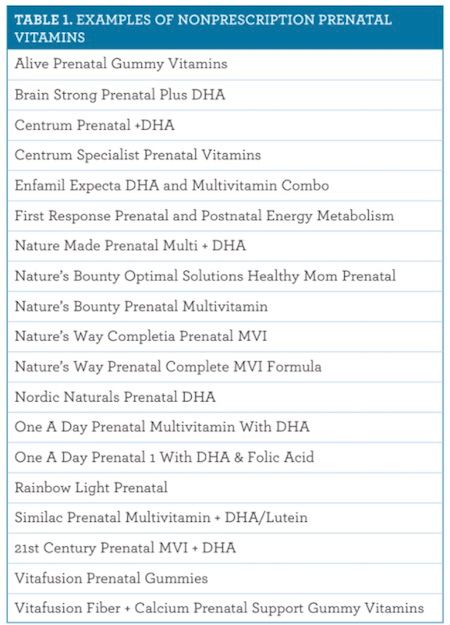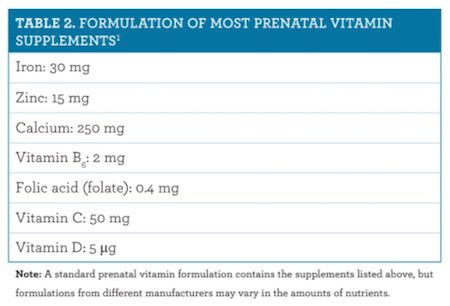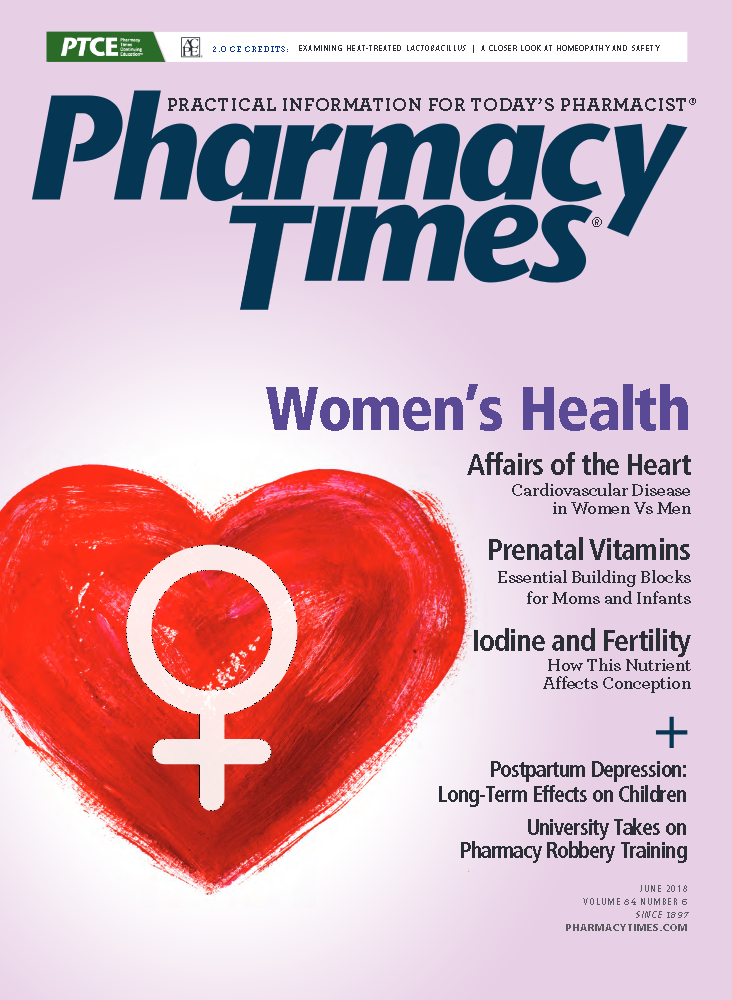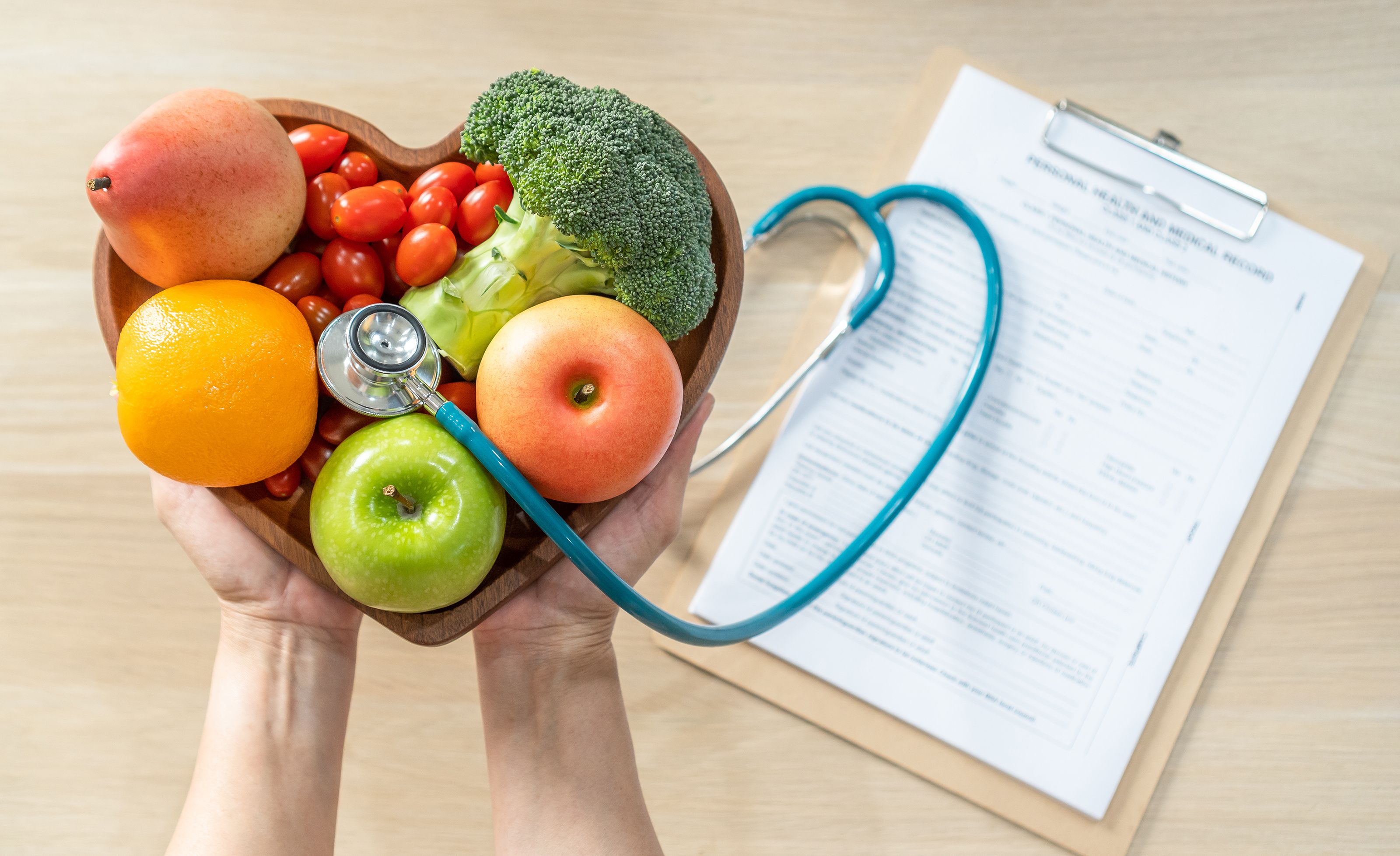Publication
Article
Pharmacy Times
Prenatal Vitamins: The Essential Building Blocks for Healthy Moms and Infants
Author(s):
Pharmacists are in a pivotal position to guide women seeking advice about prenatal health and supplements.
Pharmacists are in a pivotal position to guide women seeking advice about prenatal health and supplements. The critical nature of good nutrition before, during, and after pregnancy cannot be overstated.1 Good nutrition maintains maternal energy requirements, provides a substrate for the development of the fetus, and builds energy reserves for postpartum lactation.1 In general, recommendations for prenatal nutrition focus on dietary intake and weight gain during pregnancy.1 Obtaining early and routine prenatal care is essential to the health and well-being of both mother and unborn child. Adequate nutrition and the use of prenatal vitamin supplementation are vital components of prenatal care, as they are essential for supporting the additional energy needs of the mother-to-be. These nutritional supplements also provide critical nutrients for the mother and the development of the baby throughout pregnancy.
In addition to assisting and counseling patients in the selection and proper use of prenatal vitamin supplements, pharmacists can help increase awareness regarding the significance of obtaining early and routine prenatal care. In general, complete prenatal care includes establishing good health and nutritional habits before conception and during pregnancy as well as having routine prenatal exams throughout pregnancy. According to the US Department of Health & Human Services Office of Women’s Health (DHHS), infants who are born to mothers who do not get prenatal care are 3 times more likely to be born with a low birth weight.2 Moreover, the DHHS also provides various measures that can be employed prior to conception and throughout pregnancy that may promote the well-being of the mother and the health of her unborn child, such as2:
- Avoiding contact with harmful or toxic chemicals and materials
- Ceasing alcohol and tobacco use
- Conferring with a primary health care provider about whether any medications should be discontinued because some, including dietary and herbal supplements, are harmful to take while pregnant
- Discussing any issues prior to conception with a primary health care provider if a woman has a preexisting medical condition
- Making sure all vaccinations are up-to-date
- Taking at least 400 to 800 μg of folic acid daily starting at least 3 months before conception to decrease the risk of birth defects of the brain and spine
RECENT CLINICAL STUDIES AND NEWS
• In 2018, findings were published in the Journal of the American Pharmacists Association regarding an evaluation assessing the reported number of 10 minerals and 14 vitamins in OTC and prescription prenatal multivitamins and minerals (PMVMs).3 The evaluation studied 163 OTC and 88 prescription prenatal supplements. Investigators compared the supplements with the National Academies Health and Medicine Division’s recommended daily allowances (RDAs) and tolerable upper intake levels.3 The evaluation concluded that more than 80% of OTC and prescription PMVMs would amend the RDA deficit for folic acid, iron, and vitamins B6 , C, and E.3 More than 90% of OTC products would amend deficits for vitamin A and zinc. However, just 47% and 74% of prescription products would amend for those nutritional deficits, respectively.3 Moreover, an estimated 73% of OTC and 60% of prescription PMVMs would correct calcium deficit, and 33% of OTC and 24% of prescription PMVMs would correct vitamin D deficiencies.3 Just a small proportion of PMVMs would amend deficiencies of choline and magnesium. The evaluation also concluded that OTC products have substantially more of each vitamin or mineral compared with prescription products, with several exceptions, including copper, folic acid, iron, and vitamin B6.3
• Research results from the US Preventive Services Task Force (USPSTF) showed convincing evidence that folic acid supplementation in the periconceptional period provides substantial benefits in reducing the risk of neural tube defects (NTDs) in an unborn child.4 In a new report in 2017, the USPSTF updated its previous guidelines, recommending that all women capable of reproduction or who are planning to conceive take a daily supplement containing 0.4 to 0.8 mg (400-800 μg) of folic acid to prevent neural tube defects. (NTDs).4
• Results from a study published in BMJ in 2017 reported that the use of multivitamins during pregnancy may reduce the risk for co-occurring autism spectrum disorder (ASD) and intellectual disability.5 Investigators from Drexel University found that maternal multivitamin supplementation, with or without additional folic acid or iron, was associated with a 31% reduced risk for ASD and intellectual disability in children.5 However, further study of maternal nutrition and its role in the cause of autism is recommended.5
• Results of another study published in 2018 in JAMA Psychiatry showed that maternal exposure to folic acid and multivitamin supplements before and during pregnancy is associated with a reduced risk of ASD in infants compared with the infants of mothers without such exposure.6
• According to a new clinical practice guideline from the American College of Obstetricians and Gynecologists (ACOG), clinicians should encourage women to take prenatal vitamins for 1 month before conception, as that may decrease the incidence and severity of nausea and vomiting during pregnancy.7
OTC PRENATAL VITAMINS
Prenatal vitamins are available in nonprescription and prescription forms (Table 1). Prior to using these nutritional supplements, women should be encouraged to consult their obstetrician/gynecologist (OB/GYN) about which option is better. Formulations of prenatal vitamins provide essential nutrients that are vital for proper fetal development, and these supplements are an important part of pregnancy nutrition and should be used in conjunction with a healthy, balanced diet.1 A normal, well-balanced pregnancy diet generally provides the RDA of all nutrients except elemental iron and folate, both of which must be supplemented.1 During counseling, patients should be reminded to avoid the use of other mineral supplements or multivitamins when using prenatal vitamins to avoid therapeutic duplications or toxicities. Contents vary by individual formulation, and PMVMs should be selected based on individual patient needs. Prenatal vitamins typically contain key nutrients such as calcium, folic acid (folate), iron, and the omega-3 fatty acid docosahexaenoic (DHA).1 Other vitamins found in prenatal supplements include vitamins C, D, E, and other B vitamins, as well as other minerals (Table 2).1 Many prenatal vitamins are also formulated with omega-3 fatty acids to aid in brain and eye development of the unborn child.1,8 In addition, some recommendations suggest that pregnant women should obtain at least 200 mg of DHA daily.8


During pregnancy, women need higher amounts of folic acid and iron, according to the ACOG.9 Moreover, the ACOG recommends that women take folic acid daily before and during pregnancy to help prevent major birth defects such as NTDs.9 Folic acid is also a vital nutrient for pregnancy support, especially in the role of cell division, DNA production, and brain and spinal cord development.10 Current dietary guidelines recommend that pregnant women should obtain at least 600 μg of folic acid daily from all dietary sources including supplements.9 Because it may be difficult for women to obtain folic acid via diet alone, the ACOG recommends that all pregnant women and those planning to conceive take a daily vitamin supplement that contains the recommended amount of the vitamin.9 In addition, the ACOG’s recommended daily dose of iron during pregnancy is 27 mg, and the ACOG also recommends that all women, including pregnant women 19 years and older, should obtain at least 1000 mg of calcium daily.9
COUNSELING PATIENTS
Ideally, prenatal vitamins should be taken on an empty stomach with water. However, pharmacists should remind patients that if they experience nausea while taking prenatal vitamins, it is better to take them at bedtime and with a light snack. Patients should be advised to immediately consult their primary health care provider if they experience extreme nausea and/or vomiting. In addition, because the iron in prenatal vitamins may cause constipation in some patients, pharmacists should recommend several measures to decrease or prevent the incidence of constipation, including:
- Asking their OB/GYN about using a stool softener
- Including more fiber in their diet
- Maintaining adequate hydration daily
During counseling, patients should be advised to always select prenatal supplements from a reputable manufacturer. They should also be advised to never take any medications, including nutritional supplements, without first consulting an OB/GYN. Patients should be reminded to inform their OB/GYN about prescription and nonprescription medications, including other nutritional supplements they are taking, to avoid potential contraindications and interactions. Pharmacists should also take this opportunity to remind patients to continue routine visits with an OB/GYN, eat a balanced diet, get an adequate amount of rest, maintain a healthy weight, and regularly exercise for their overall health and the health of their unborn child.
Yvette C. Terrie, BSPharm, RPh, is a consultant pharmacist and a medical writer based in Haymarket, Virginia.
References
- Hylton J. Prenatal nutrition. Medscape website. emedicine.medscape.com/article/259059- overview#a6. Updated April 2, 2018. Accessed April 18, 2018.
- Prenatal care. US Department of Health & Human Services Office of Women’s Health website. womenshealth.gov/publications/our-publications/fact-sheet/prenatal-care.html. Updated February 9, 2018. Accessed April 18, 2018.
- DeSalvo K, Stamm CA, Borgelt LM. Evaluation of reported contents in prescription and over-the-counter prenatal multivitamins. J Am Pharm Assoc (2003). 2018;pii: S1544- 3191(18)30020-7. doi: 10.1016/j.japh.2018.02.006.
- US Preventive Services Task Force, Bibbins-Domingo K, Grossman DC, et al. Folic acid supplementation for the prevention of neural tube defects: US Preventive Services Task Force recommendation statement. JAMA. 2017;317(2):183-189. doi: 10.1001/jama.2016.19438.
- DeVilbiss E, Magnusson C, Gardner R, et al. Antenatal nutritional supplementation and autism spectrum disorders in the Stockholm youth cohort: population-based cohort study. BMJ. 2017;359:j4273. doi: 10.1136/bmj.j4273.
- Levine SZ, Kodesh A, Viktorin A, et al. Association of maternal use of folic acid and multivitamin supplements in the periods before and during pregnancy with the risk of autism spectrum disorder in offspring. JAMA Psychiatry. 2018;75(2):176-184. doi: 10.1001/jamapsychiatry.2017.4050.
- Committee on Practice Bulletins-Obstetrics. ACOG practice bulletin no. 189: nausea and vomiting of pregnancy. Obstet Gynecol. 2018;131(1):e15-e30. doi: 10.1097/AOG.0000000000002456.
- Vitamins and other nutrients during pregnancy. March of Dimes website. marchofdimes.org/pregnancy/vitamins-and-other-nutrients-during-pregnancy.aspx. Updated February 2018. Accessed April 18, 2018.
- Nutrition during pregnancy. American College of Obstetricians and Gynecologists website. acog.org/-/media/For-Patients/faq001.pdf?dmc=1&ts=20150402T1126130956. Published February 2018. Accessed April 18, 2018.
- Folic acid can help prevent certain birth defects. Centers for Disease Control and Prevention website. cdc.gov/features/folicacidbenefits/. Updated January 8, 2018. Accessed April 18, 2018.

Newsletter
Stay informed on drug updates, treatment guidelines, and pharmacy practice trends—subscribe to Pharmacy Times for weekly clinical insights.






